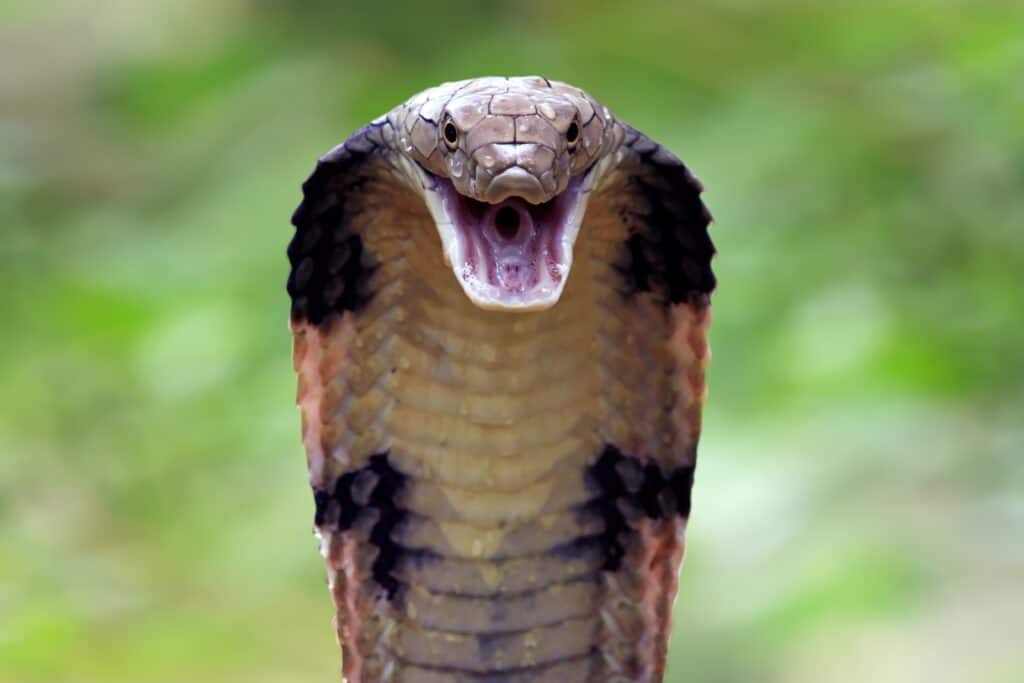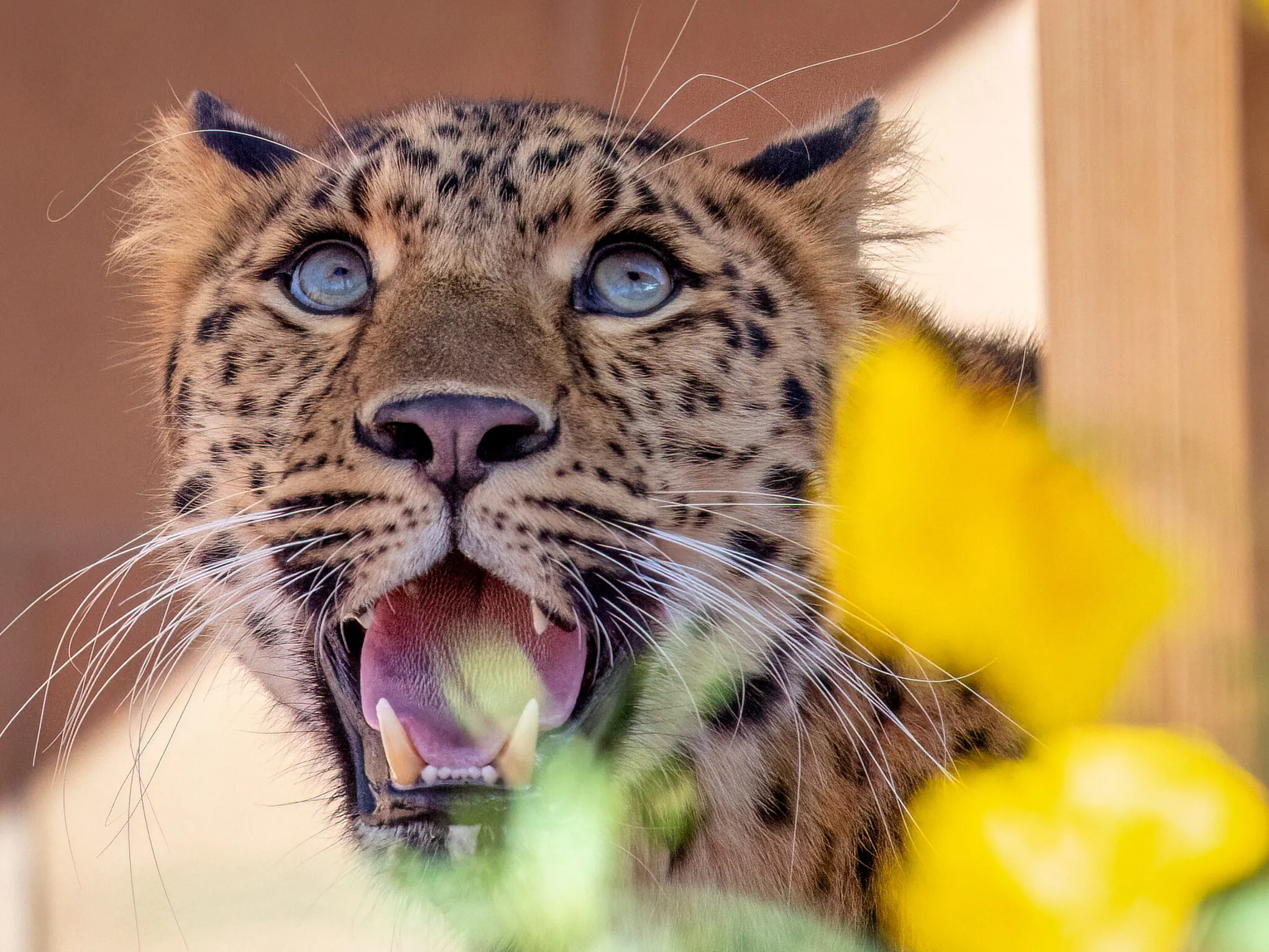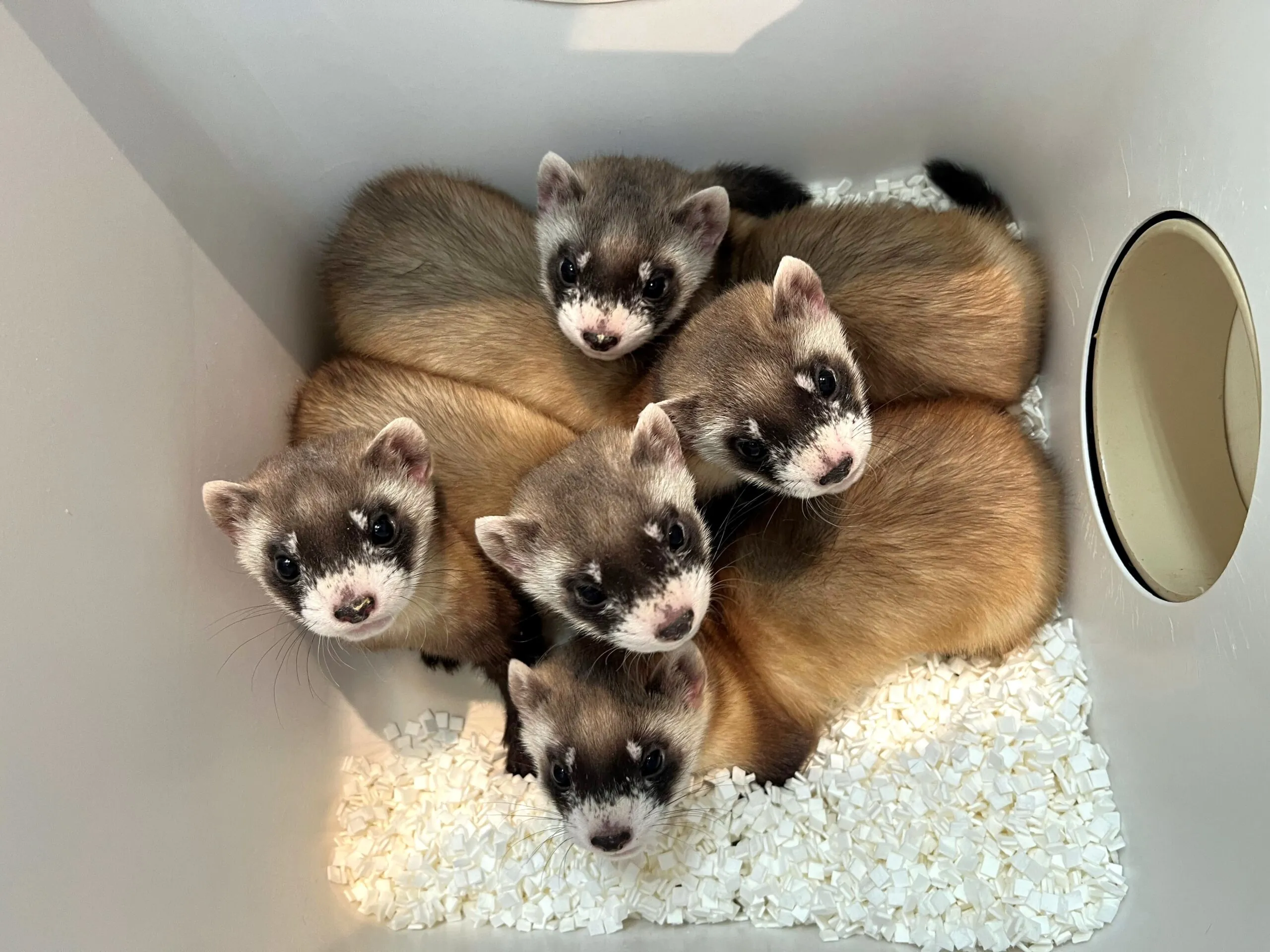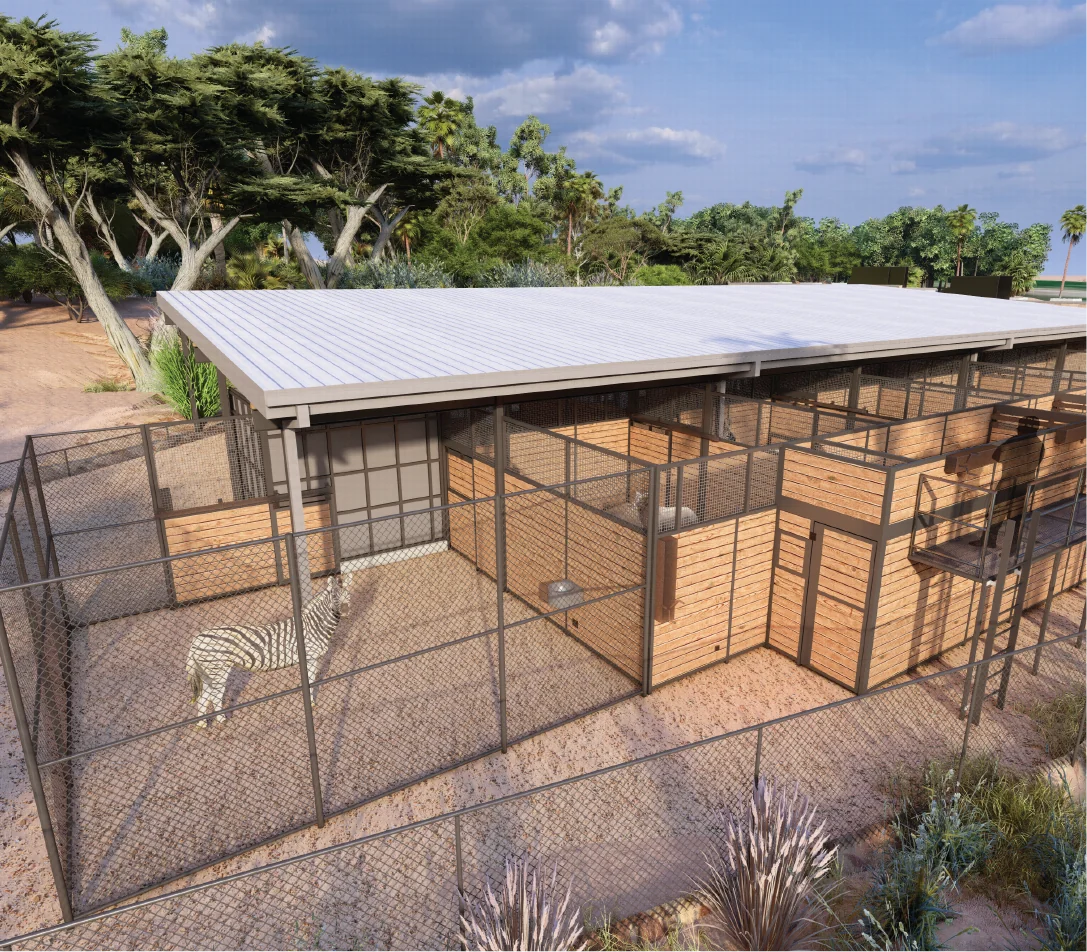King Cobra
Ophiophagus Hannah
This species is not currently on view at the Phoenix Zoo.
Snakes That Build Nests?
King cobras are the only snakes in the world known to build nests, some up to four feet tall! The female uses her body to collect leaves into a pile where she lays roughly 20 – 40 eggs. She then covers the nest with more leaves to help keep the eggs warm and dry. The process takes anywhere from a half-day to several days, after which she lays on the nest for a few weeks, or even months, to incubate and protect her eggs. Instinctually, she knows to leave the nest prior to hatching, thus avoiding eating her own offspring.
Growler
Many snakes use sound to scare off intruders. Some rattle their tails, others rub their scales, some hiss and some even bellow, but king cobras can growl. Naturally quite shy, king cobras become aggressive when cornered or guarding eggs. By blasting air through tiny holes in their respiratory tracts, they produce a raspy, low-frequency growl. The only other snakes capable of making such sounds are red-tailed green rat snakes, a species commonly eaten by king cobras.
Long Live the King
King cobra populations are shrinking fast. In recent decades, human expansion has destroyed much of the snake’s habitat and caused an increase in conflict with humans. These encounters are generally negative for cobras, as they are often killed in fear or harvested for skin, food, the pet trade or use in traditional medicine. Conservation efforts to save king cobras are crucial. As apex predators, they serve an important function by keeping prey species at sustainable levels. Also, by studying the health of king cobras, scientists can get an idea of the overall health of their ecosystems.

Diet: snakes, lizards, rodents, eggs
Zoo Diet: whole prey (rodents)
Habitat: forests, grasslands, mangroves
Length: 8 – 18 ft

Plan your visit today!
The Phoenix Zoo is one of the largest non-profit zoos in the U.S., caring for over 3,000 animals, with nearly 400 species represented, including many threatened/endangered species.








